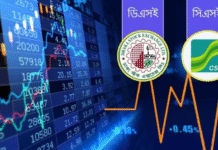World financial leaders will agree to calibrate and communicate monetary policy carefully to avoid triggering capital flight, but will not call an expected US rate rise a risk to growth, a draft communique showed on Friday.
Many emerging market economies are concerned that when the US Federal Reserve raises borrowing costs, investors will withdraw from other markets and buy dollar assets, weakening other currencies and creating turbulence as capital flees.
Officials from emerging markets wanted the communique from finance ministers and central bank governors of the Group of 20 biggest economies, meeting in Turkey, to say that a US rate rise now would be a risk to growth.
But the draft avoids such wording.
“We note that in line with the improving economic outlook, monetary policy tightening is more likely in some advanced economies,” the draft communique, seen by Reuters, said.
“We will carefully calibrate and clearly communicate our actions to minimize negative spillovers, mitigate uncertainty and promote transparency,” said the draft, which may yet change before it is finally agreed yesterday.
An earlier version of the text said policy tightening in developed economies “may remain one of the main sources of uncertainty in financial markets”.
“In one of the wild formulations it said that this was the biggest threat to the world economy. This was killed immediately and forever,” a Russian source said earlier.
The text welcomed strengthening activity in some economies but said that global growth fell short of expectations, although it expressed confidence a recovery would gain speed.
It also indirectly addressed Chinese moves that weakened its yuan currency in August, in a sign these were not seen as a competitive devaluation to prop up Chinese exports.
“We reiterate our commitment to move toward more market determined exchange rate systems and exchange rate flexibility to reflect underlying fundamentals, and avoid persistent exchange rate misalignments,” it said.
“We will refrain from competitive devaluations and resist all forms of protectionism.”
Slower growth in China and rising market volatility have boosted the risks to the global economy, the International Monetary Fund warned ahead of the G20 meeting, citing a mix of potential dangers such as depreciating emerging market currencies and tumbling commodity prices.
But the G20 had been seen as unlikely to come up with any concrete new measures to address the spillover from instability in the world’s second-largest economy, or to call directly on Beijing to address structural issues such as rising bad debts.
Easy money
Luxembourg Finance Minister Pierre Gramegna, whose country holds the rotating presidency of the European Union, shrugged off the prospect of US interest rate hikes.
“We cannot live all the time on easy money … One has to be realistic that at one point in time the curve of interest rates will have to change,” he told Reuters.
“This G20 comes at a very good time because it gives the Fed an opportunity to gauge all the elements at stake.”
Bank of Japan Governor Haruhiko Kuroda said any Fed rate rise would be a positive sign for the global economy, despite the unease in some emerging markets that such moves could cause capital outflows and currency volatility.
“If the U.S. were to raise rates, that would speak to the underlying firmness and growth in the U.S. economy, and that would actually be a plus for the global economy,” he said.
One specific idea being examined at the Ankara meetings is a proposal from a group of financial stability experts to adopt a two-stage approach for introducing Total Loss Absorption Capacity (TLAC) buffers for big banks, a G20 source said.
The buffer is a new layer of debt big banks like Goldman Sachs and Deutsche Bank AG must issue to write down in a crisis and bolster their capital.
The proposal would introduce a buffer of 16 percent of a bank’s risk-weighted assets from 2019 and 20% from 2022, the source said.
The United States had pushed for 20%, while some in Europe had been arguing for 16% on the grounds that their banks were still recapitalising after the financial crisis.
The draft pencilled in that a deal should be ready for the endorsement of G20 leaders at their summit in southern Turkey in November, but some countries were concerned there would not be enough time to reach a final agreement by then.
There was no clear pronouncement on China’s desire to have the yuan included in the International Monetary Fund’s Special Drawing Rights basket of currencies, but the draft said G20 finance chiefs expected progress in November, when the IMF has a board meeting on the issue.
“China has moved in the direction in currency and monetary policy … that is necessary if they want to achieve the goal of getting China into the IMF currency basket,” German Finance Minister Wolfgang Schaeuble told reporters, welcoming Beijing’s near 2% yuan devaluation last month. China is keen for the symbolic boost it would get from the yuan’s inclusion.
Source: Dhaka Tribune










